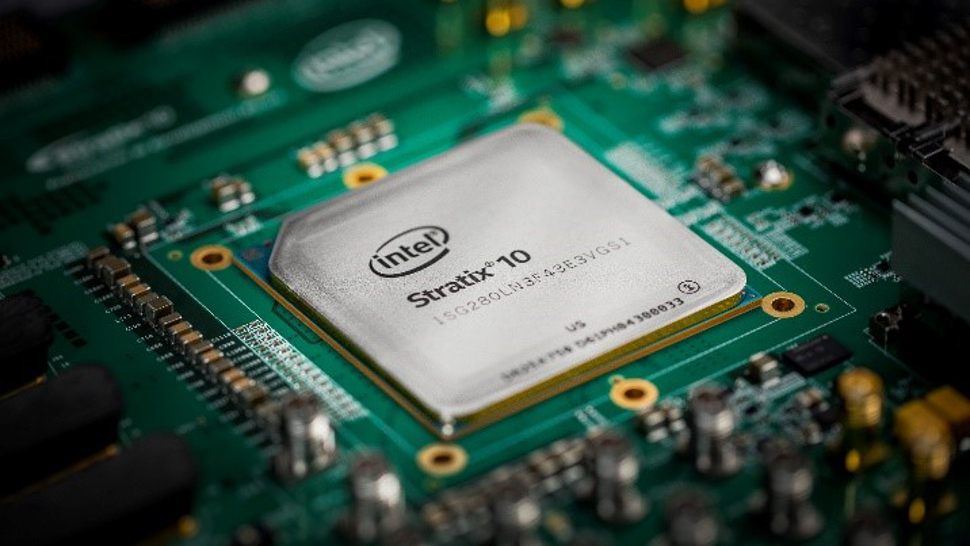Microsoft’s Project Brainwave delivers powerful, real-time AI from the cloud
Deep learning acceleration platform uses Intel’s Stratix 10 FPGA

In a bid to make artificial intelligence more accessible all-round, Microsoft has kicked off a new project which delivers real-time AI via the cloud, utilizing some nifty technology from Intel.
Project Brainwave is described by Microsoft as a deep learning acceleration platform which employs Intel’s Stratix 10 FPGA (field programmable gate array) hardware accelerator to run AI through the cloud and still deliver near-instant results.
The system is capable of processing and transmitting data with ‘ultra-low latency’, delivering results as fast as that data comes in, and so effectively operating in real-time. And that’s a clear boon for the sort of applications that need this, from digital assistants through to the likes of autonomous driving.
The system has already shown that Intel’s Stratix 10 tech can exceed 39 Teraflops in terms of performance on a single request.
Microsoft engineer Doug Burger notes: “At that level of performance, the Brainwave architecture sustains execution of over 130,000 compute operations per cycle, driven by one macro-instruction being issued each 10 cycles.
“Running on Stratix 10, Project Brainwave thus achieves unprecedented levels of demonstrated real-time AI performance on extremely challenging models.”
And further gains are expected as Microsoft hones the system over the next year or so.
Get daily insight, inspiration and deals in your inbox
Sign up for breaking news, reviews, opinion, top tech deals, and more.
Fun with frameworks
Project Brainwave supports deep learning frameworks including Microsoft’s own Cognitive Toolkit and Google’s Tensorflow, and the firm is planning to bring it to Azure customers as well.
Powerful real-time AI processing capabilities on tap will be another major string to Azure’s bow, for sure.
Microsoft is also busy setting new industry benchmarks when it comes to speech recognition, and that means we should see sharper performance from the firm’s own digital assistant Cortana in the future (not to mention Windows 10’s built-in voice recognition).
- Cloud-based AI could improve best gaming PC in more ways than one
Via Engadget
Darren is a freelancer writing news and features for TechRadar (and occasionally T3) across a broad range of computing topics including CPUs, GPUs, various other hardware, VPNs, antivirus and more. He has written about tech for the best part of three decades, and writes books in his spare time (his debut novel - 'I Know What You Did Last Supper' - was published by Hachette UK in 2013).